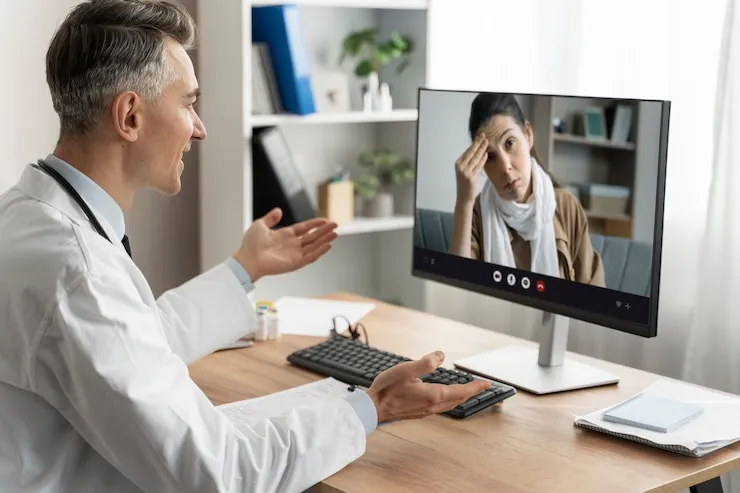Aaron Jackson
Brain Care From Anywhere: The Advantages of Telehealth Consultations with Neurosurgeons
The human brain is a complex organ responsible for everything from our thoughts and emotions to movement and sensory perception. When neurological conditions arise, seeking expert care is crucial. Traditionally, consulting a neurosurgeon involved scheduling an in-person appointment, potentially facing long wait times and travel inconveniences. However, the emergence of telehealth offers a revolutionary alternative, allowing patients to connect with highly qualified neurosurgeons virtually.
Benefits of Telehealth Consultations with Neurosurgeons
Convenience and Accessibility:
Telehealth eliminates the need for travel and in-person appointments. Patients can connect with a neurosurgeon from the comfort of their homes, offices, or any location with a secure internet connection. This convenience is particularly beneficial for individuals with mobility limitations or those residing in remote locations with limited access to specialized brain care.
Reduced Wait Times:
Telehealth consultations often have shorter wait times compared to traditional in-person appointments. This is because telehealth platforms allow neurosurgeons to schedule more appointments throughout the day, streamlining access to expert care.
Improved Patient Experience:
Telehealth consultations can be less stressful and time-consuming for patients, especially those experiencing anxiety or discomfort associated with traditional hospital or clinic settings. The familiar and comfortable environment of home can make it easier for patients to openly discuss their concerns with the neurosurgeon.

Cost-Effectiveness:
Telehealth consultations can be more cost-effective than traditional in-person appointments. Patients avoid travel expenses like parking or public transportation fares, and healthcare providers may offer reduced fees for virtual consultations.
Continuity of Care:
Telehealth facilitates ongoing communication with your neurosurgeon. Follow-up consultations or medication adjustments can be easily conducted virtually, ensuring seamless continuity of care and management of your neurological condition.

Common Neurological Conditions Addressed Through Telehealth
Headaches:
Telehealth consultations are well-suited for discussing and managing chronic headaches like migraines or tension headaches. Neurosurgeons can assess your symptoms, recommend appropriate medications or preventive measures, and determine if an in-person evaluation is necessary.
Back and Neck Pain:
Neurosurgeons can evaluate back and neck pain through telehealth consultations, potentially identifying underlying neurological causes and recommending non-surgical treatment options like physical therapy or medication management.
Seizures:
For patients with epilepsy, telehealth consultations can be used to monitor seizure activity, discuss medication changes, and address any concerns related to their condition.
Post-Surgical Follow-Up:
Following neurosurgical procedures, telehealth consultations can be utilized for follow-up appointments, monitoring recovery progress, and addressing any post-operative concerns.
Pre-Surgical Consultations:
In some instances, telehealth consultations may be appropriate for initial consultations with a neurosurgeon to discuss potential surgical options and answer preliminary questions before an in-person evaluation is necessary.
What to Expect During a Telehealth Consultation with a Neurosurgeon
Preparation:
Before your telehealth appointment, a clear and concise description of your symptoms, including their onset, duration, and severity.
The Consultation:
During the virtual consultation, gather your medical records and a list of current medications. Prepare aon, the neurosurgeon will review your medical history, discuss your symptoms in detail, and may ask you to perform specific physical maneuvers to assess your neurological function. Telehealth platforms often allow for secure video conferencing, enabling the neurosurgeon to visually examine you.
Diagnosis and Treatment Recommendations:
Based on the consultation, the neurosurgeon will provide a diagnosis, recommend appropriate treatment options, and potentially prescribe medication. They may also determine if an in-person follow-up appointment with a physical examination is necessary.

 Telehealth Visits Available
Telehealth Visits Available
